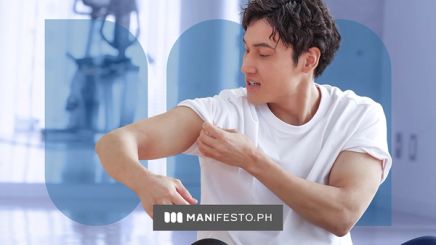
Are a cluster of small, grainy bumps setting camp on your skin? They may be warts – benign yet persistent skin growths that can feel itchy and are tough to ignore. Contrary to myth, they’re not always indicative of . Approximately (around 800 million people!) have warts. So, it’s a smart move to learn more about what causes warts and ways to protect your skin from them.
What Causes Warts?
Warts owe their presence to human papillomavirus (HPV) strains. This viral intruder enters the body through skin cuts, , and microscopic breaks in the skin. Once inside, it triggers the rapid growth of cells on the skin’s outer layer, forming warts.
It's important to note that the type of warts you have is determined by you have contracted. For instance, strain 2 induces warts on the face, hands, and heels. Strain 6 triggers genital warts while strain 3 and 10 are responsible for flat warts.
Although we know what causes warts is mostly linked to HPV, several factors can also influence the likelihood of developing this skin infection.
You have a weakened immune system.
Stress, , , and certain health conditions like diabetes as well as autoimmune disorders can hinder your body’s ability to ward off viruses. Your immune defense lowers, increasing your risk of getting warts.
If you find yourself in this situation, adopt healthier lifestyle choices. Consume food rich in immune-boosting nutrients (vitamin C and zinc are some of the essentials), catch plenty of z’s, and do a to help your body protect itself.
You’re sharing personal items.
FYI, warts are contagious. They can be transmitted via direct contact with surfaces or items used by someone with the virus. Long story short, it’s not selfish to keep your belongings to yourself. Don’t share towels, nail clippers, razors, hairbrushes, socks, and other personal items that touch the skin.
Another important reminder is to frequently wash your hands with Lifebuoy Antibacterial Soap Total 10. Gently scrub every part of your hands for at least 20 seconds and let Lifebuoy’s Activ Silver+ formula fight 99.9% of germs on your skin.
You have unprotected sex.
If you’re sexually active and not in a , your odds of catching HPV double. Just like sexually transmitted infections, warts can be easily passed on through contact between tissues that cover the genitals and anus. It’s why condoms are always a good idea. However, because the virus can spread via skin-to-skin contact, know that this contraceptive can’t 100% protect you from warts.
Tips to Prevent Warts From Ruining Your Groove
The HPV family, a.k.a. what causes warts, is found everywhere. Most of us will get it at some point in our lives. And for this reason, it’s important to follow these precautions.
1. Don’t touch your warts.
Warts can look a lot like and , which may tempt you to poke or pick on them. However, a single touch can potentially expose you to HPV and, in turn, cause skin infections. Before you know it, lumps start popping up in areas of your body. So, avoid touching your warts. If you have an infection, remember to keep your hands to yourself and sanitize regularly.
2. Hydrate your skin.
Dry skin is more susceptible to micro-injuries, creating entry points for viruses to invade your system. It’s why moisturizing your body should be at the top of your grooming to-do list. First thing first, wash up with Lifebuoy Antibacterial Bodywash Total 10. This liquid soap contains Activ Silver+ that protects you from disease-causing germs and helps reduce inflammation. Then, apply body lotion all over your damp skin. Trust us, it’s worth the investment.
3. Stop biting your nails.
Chewing on those cuticles might be calming in a weird, twisted way. But this unhygienic habit can make it easier for viruses and bacteria to mess your skin up. Do yourself a favor by resorting to a safer stress-relief method. You can try fidget toys, deep breathing exercises, or maybe using that pent-up energy for a new hobby. Whatever it is, just quit gnawing on your fingers.
4. Wear your shoes, please.
You’re free to walk barefoot at your casa. Hey, it’s your right as a human being, and no one should take that away. But never go shoeless in public spaces, like the gym, communal shower or pool, and locker rooms. They’re hotspots for microbes, and we’re not just talking about HPV. Besides, only God knows the last time those spaces were cleaned and disinfected.
It doesn’t hurt to educate yourself about what causes warts. This knowledge can save you from this problem and protect your skin from future infections. And if you’re currently dealing with warts, check with a doctor. They can prescribe you medications (or even do cryotherapy) to help speed up the healing process.